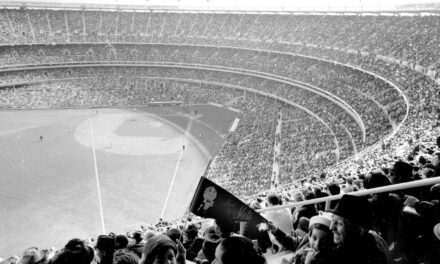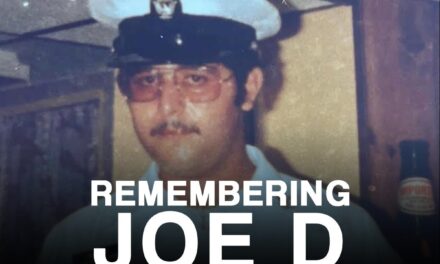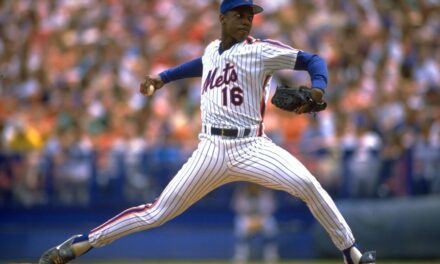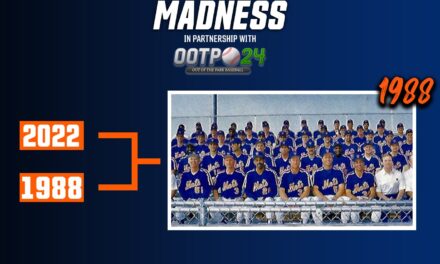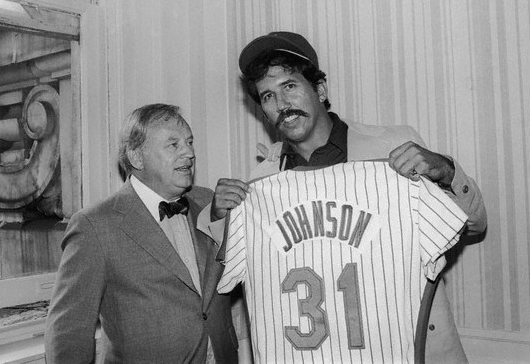
On May 29, 1990, the Mets decided it was time to move on from the manager who guided them to the second championship in team history, relieving Davey Johnson of his duties and replacing him with Bud Harrelson.
The Mets had gotten out of the gate slowly in 1990, and were treading water at 20-22 when the change was made. Harrelson completed the 1990 season as skipper, and was at the helm until the very end of the 1991 season when he was replaced by Mike Cubbage in September. Under Harrelson in 1990, the Mets posted an impressive 71-49 record, finishing the season at 91-71 in second place and out of the post season.
Johnson, an Orlando, FL native, had assumed his spot in the Mets’ manager’s office in 1984, overseeing the rebirth of a franchise that had been mired in darkness since 1977. In Johnson’s first season, the Mets were a surprising 90-72 and were in contention until the last week of the season. The next year, with the addition of Gary Carter, the Mets went 98-64, missing the playoffs when the St. Louis Cardinals won the division in a close race.
The story was much different in 1986, as the Mets dominated the regular season from pole to pole, finishing with a 108-54 record. While the Mets were not nearly as dominant in the post season, they found a way to defeat the Astros in the NLCS and Red Sox in World Series to claim the title of champions for only the second time.
One of the biggest criticisms of Johnson is that the Mets won just one World Series on his watch. The teams were talented enough to win in the mid and late 1980s, but fell short for a variety of reasons. The 1987 team was riddled with injuries, particularly down the stretch, and finished 92-70 as runners-up to the Cardinals. The 1988 team won the division, but lost the NLCS to a Dodgers team that many considered to be inferior, but on a storybook run through the post season. By 1989, the Mets’ core had aged, and the team ended the season 87-75 in second place as the Cubs won the division.
As a player, Johnson made his MLB debut in 1965, appearing in 20 games as utility infielder. He would spend most of his career as a second baseman, with stints in Baltimore, Atlanta, Philadelphia, and with the Cubs. He also spent two seasons playing in Japan. His MLB career slash line over 13 seasons is .261/.340/.404 with an OPS of .744. He slugged 136 home runs, including 43 in 1973 while with the Braves.
After his Mets’ managerial career, Johnson went on to manage the Reds, Orioles, Dodgers, and Nationals, finishing in first place in four of ten total seasons. He never won a pennant in any of those seasons.
Davey Johnson holds two particular places in Mets history. One for guiding the team to a championship in 1986, and the other for being the last batter to oppose them in their first championship season of 1969. Johnson ended the World Series with a fly ball to left field off Jerry Koosman, caught by Cleon Jones who iconically took a knee upon securing the baseball.
Johnson, now 78 years old, battled COVID-19 last winter. Despite the arguable underachievement of his teams in the late 1980s, he helped turn a Mets franchise around from the abyss of the post-Seaver era to a new beginning, with the likes of Dwight Gooden, Keith Hernandez, Ron Darling, Lenny Dykstra, and Sid Fernandez. Johnson famously said:
“Once you start winning, you don’t want to stop. You don’t want to lose.”
The Mets did their fair share of winning in during Johnson’s managerial tenure. His confidence and swagger came at just the right time for the franchise, and helped change the attitude in Queens.
Here is a Metsmerized hat tip to Davey Johnson, Mets manager and a pioneer in the use of advanced statistical analysis in baseball.


